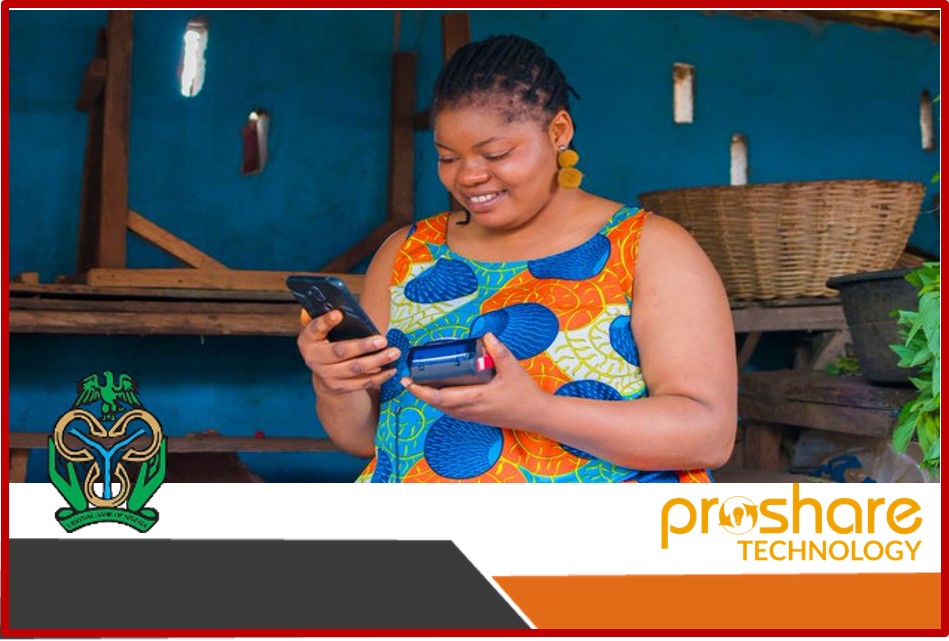Wednesday, December 09, 2020 / 10:05 AM / By CBN / Header Image Credit: Nigeria Business Directory
63.2% up, 16.8% to go...
The year 2018 ended on a high with financial inclusionin Nigeria increasing to 63.2% from 58.4% in previous measurement year. Year2019 started with a renewed vigor and determination by stakeholders to workcollaboratively in ensuring the outstanding gap of 16.8% was closed within thenext two years. To that effect the year largely focused on developing highimpact policies and initiative that would facilitate the attainment of theinclusion objective, by addressing specific gap in disproportionately excludeddemographics like women, youth, rural dwellers MSMEs and Northern Nigeria.While 2019 was not a measurement year, stakeholders put a robust framework onground to ensure progress is appropriately tracked and deviations are timelycorrected to ensure the successful implementation of planned initiative and toremain on track for year 2020.
Unlocking innovativechannels and addressing underlying issues in the Digital Financial ServicesEcosystem
The Payment Service Bank (PSB) Licensing andRegulatory framework that was issued in 2018 led to an increase activity of someinnovative promoters that wanted to come into the financial services space toextend the rails of financial services to the unbanked. This led to theissuance of Approval in Principle (AIP) licenses to three promoters.
A functional Id system is a critical foundationalinfrastructure for the expansion of the Digital Financial Services (DFS)frontier to hitherto unreached. To underscore the importance of DFS toFinancial Inclusion, The Federal Government through the National IdentityManagement Commission (NIMC), a key stakeholder in the financial inclusionspace, adopted September 16th as National Identity day. This would enhance theWorld Bank assisted ID for development project and ultimately lead to morefinancial inclusion through DFS.
Furthermore, one major concern for DFS adoption ispricing and consumer protection. Towards the end of the year, the Central Bankof Nigeria released the revised Guide to Bank charges which sort to addressboth concerns.
The drive to expand the agent network saw Shared AgentNetwork Expansion Facility (SANEF) increase its agent acquisition year on yearby 184% by driving activities of agents onboarded from 83,560 as at December2018 to 236,940 by year end, 2019.
A year of focus onaddressing the Financial Inclusion Gender gap
The financial inclusion gender gap persisted at 9%between 2014 and 2017 according to the Global Findex Survey. Women often facepeculiar challenges in accessing financial products and services hindering theeffective contribution of 50% of the global population to growth anddevelopment.
In 2018, the Nigerian Financial exclusion rate stoodat 36.8% with 41.1% of women financially excluded in comparison to 32.6% of men.The gender Financial Inclusion gap in Nigeria therefore stands at 8.5%
In 2019, as part of efforts to achieve 80% financialInclusion in Nigeria, a Financial inclusion Gender desk was established withinthe Financial Inclusion Secretariat to drive implementation of policies, schemesand interventions targeted at improving women's access to finance.
One major achievement of the gender desk wasconducting a gender landscape study in conjunction with Enhancing FinancialInnovation and Access (EFInA). The study identified lack of income, lack ofeducation and lack of trust in the financial services as the tripod stand uponwhich the gender financial inclusion gap stands. This finding a served as afulcrum to developing policies and framework on addressing the financialinclusion gender gap in Nigeria.
Election year butrelatively stable macroeconomic environment
Year 2019 is an election year. In spite of that, theeconomy sustained its modest growth in 2019. The growth in output wasattributed, largely, to the relatively stable macroeconomic environment.
In a bid to increase lending to the real sector, CBN'sdirected banks to maintain a minimum Loan-to-Deposit ratio of 60.0 per cent inJuly 2019 and 65.0 per cent by end-2019. The bank also funded over 1.4 Millionsmall Holder farmers under the Anchor Borrowers programme contributing to agrowth of 2.4% in the Agriculture sector compared to 2.1% in 2018. Theenvironment generally was enabled to facilitate financial inclusion amongstMSME one of the four disproportionately financially excluded segment inNigeria.
The volume and value of electronic payments in 2019rose by 46.7 and 25.5 per cent to 3,002.8 million and N167,014.32 billion,respectively, compared with 2,046.4 million and N133,042.24 billion in 2018.However, the insurance sector experienced a decline in the gross premium of theInsurance industry by 6.44 per cent to N453.6 billion in 2019 compared with theprevious year.
A year of sustainedcollaboration for Financial Inclusion with eyes on year 2020
National Financial Inclusion stakeholders, throughpublic-private sector collaboration embarked on a number of initiatives thatwould further improve the chances of meeting the financial inclusion target by2020. The collaboration led to some gains which include commencement of thenationwide rollout of the National Peer Group Educator Programme (NAPGEP) forFinancial Inclusion, and a pilot account opening week with a total of 70,534new accounts and 16,471 mobile wallets opened during the week.
While the year is not without its challenges,financial inclusion stakeholder from various public and private organizationsare on their resolution to achieve the set financial inclusion target byDecember 2020.
Related News
- Leveraging Non-Interest Finance for Financial Inclusion
- Ecobank, Vanguard Announce New Date for Digital Financial Inclusion Summit
- PSBs as the Key to Driving Financial Inclusion?
- Firstbank Promotes Financial Inclusion Amongst Children with Kidfirst and Mefirst Accounts
- Leadway Partners AWABAH to Provide Financial Services to The Informal Sector
- WFIS Africa: World Financial Innovation Series 2020
- Alan Sinfield, and Other Professionals to Speak at Ecobank Digital Financial Inclusion Summit
- Nigeria Faces Significant and Growing Gender Gap in Financial Inclusion
- Data Science Nigeria Wins the Best Poster Award at the Global EC20 Conference
- Identification Management: The Key to Digital and Financial Inclusion in Nigeria
 Lagos, NG • GMT +1
Lagos, NG • GMT +1











 1381 views
1381 views








 Sponsored Ad
Sponsored Ad
 Advertise with Us
Advertise with Us









